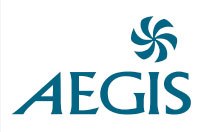Last week UK PM Boris Johnson made a significant statement on Covid-19 to the UK Parliament.
The number of new cases of Covid-19 infection is falling, but hospital admissions and occupancy continue to be high. As at 31-January, nearly 9 Million people in the UK had received at least one vaccination, over 60% of the people in the top 4 priority groups.
On 22-February, the Government will publish its plan for the easing of lockdown restrictions. If the target for vaccinations in the top 4 priority groups has been met, and other metrics (infection rates, hospital admissions, hospital occupancy levels, etc) are at acceptable levels and heading in the right direction, there will be a phased relaxation of restrictions, by sector and possibly by geographic region, starting 8th March.
The Government continues to prioritise education, so schools will be the first sector to re-open, although not before 8th March. Schools will be given 2 weeks notice to give time for staff, parents and students to prepare for the return.
There has been no change to previously advised plans for examination: Public exams have been cancelled, and guidance on assessment methods is expected by the end of February, the consultation closed on Friday 29- January. IGCSE, IA and Pre-U exams are currently planned to proceed, although the boards are coming under mounting pressure to review the current Summer exam process.
There are further restrictions to international travel.
People travelling from the UK will need to prove that their travel is essential and is exempt from the travel bans.
The bans on travel to the UK for non-UK citizens/residents are still in force.
UK residents returning to the UK will need to quarantine at home, as previously advised. In a new restriction, UK residents returning to the UK from one of the “red list” countries (including S.America, Portugal, Southern Africa, UAE) will be required to quarantine for a full 10 days, and in future this will need to be in a Government designated hotel.

